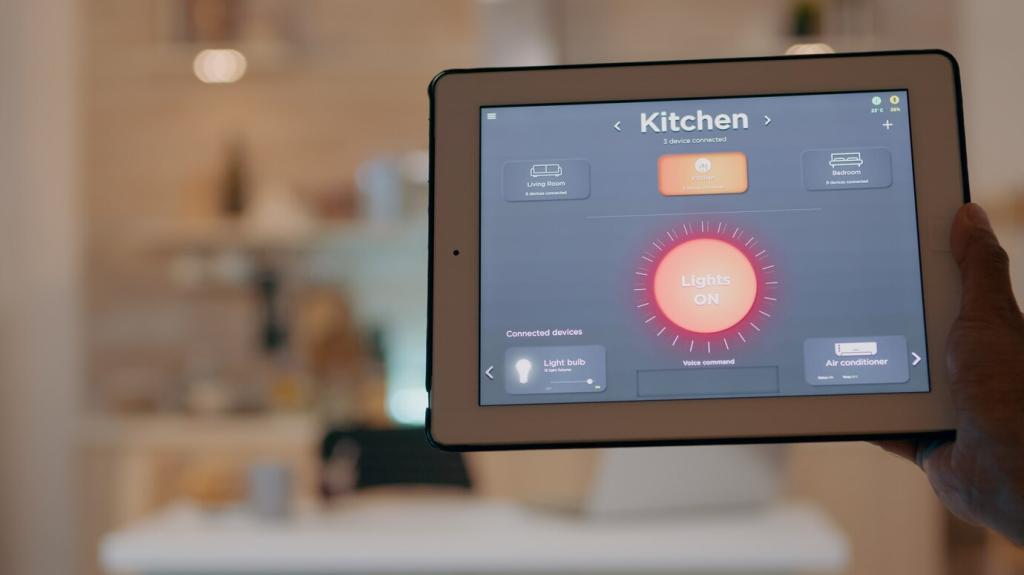Sustainable Smart Appliances for the Future
Sustainable smart appliances are redefining the way we live, balancing advanced technology with eco-conscious design. By integrating intelligent systems and resource-efficient materials, these devices promise not only to make daily tasks easier, but also to preserve the environment for generations to come. As global awareness of finite resources and climate change grows, the demand for home and industrial solutions that are both smart and sustainable has never been higher. This page explores how cutting-edge appliances are leading the way toward a greener, more connected future.
The Evolution of Smart Appliances
From Manual to Automated: The Journey
The progression from basic, manually operated appliances to today’s intelligent devices has been driven by the necessity for greater efficiency and user convenience. Early appliances relied on simple mechanics and rudimentary electronics, while today’s models are equipped with sensors, internet connectivity, and AI-powered algorithms. These advancements enable devices to anticipate needs, optimize their cycles, and even learn from user behavior, resulting in unparalleled levels of convenience and significant energy savings. As a result, what was once a time-consuming routine can now be managed with a few taps on a smartphone or even handled automatically. This shift not only improves quality of life but also plays a key role in resource management—a crucial consideration in the modern world.
Integrating Sustainability Into Design
Recognizing the environmental impact of traditional appliances, innovative manufacturers have embedded sustainability at the core of product design. By using recyclable materials, improving product lifespans, and prioritizing energy and water efficiency, designers are reshaping the concept of household technology. Integration of smart features allows for dynamic adjustment according to usage patterns, minimizing waste while maintaining performance. Additionally, many new appliances are built for easy maintenance and upgradeability, reducing electronic waste and encouraging longevity. These improvements reflect a profound shift toward responsible consumption and the commitment to fostering an eco-friendly lifestyle through smarter choices.
Connectivity and the Internet of Things
The Internet of Things (IoT) is central to the new era of smart appliances, connecting devices to each other and to users in powerful ways. Cloud connectivity not only allows remote monitoring and control, but also delivers regular software updates that can enhance efficiency over time. Through shared real-time data, appliances can intelligently adjust their operation based on variables like electricity rates, weather forecasts, or user preferences. This level of interactivity encourages occupants to become more mindful about their consumption, while ensuring appliances remain optimized for minimal environmental impact. IoT-enabled connectivity truly represents the intersection of modern convenience and ecological stewardship.
Previous
Next
Energy Efficiency and Resource Optimization
Smart appliances are capable of analyzing patterns in energy use and adjusting their operation to align with periods of low demand, which reduces strain on the grid and maximizes efficiency. Advanced learning algorithms monitor user habits and environmental factors, dynamically managing power consumption without compromising performance. Many devices can coordinate with renewable energy sources or prioritize off-peak operation, making real-time decisions that save electricity and cut costs. Over time, these cumulative savings amount to significant reductions in both energy expenses and carbon emissions, ensuring that users benefit today while supporting a more sustainable tomorrow.

Personalized and Adaptive Operation
Today’s smart appliances are equipped with the capability to personalize their operation based on learned user preferences. This individualization means that, over time, devices remember ideal settings, favorite cycles, or preferred usage times, ensuring that every interaction is as convenient and resource-efficient as possible. Through adaptive technology, appliances respond dynamically to changes in household occupancy, time of day, or special usage events, optimizing for comfort and efficiency simultaneously. This high degree of personalization not only enhances comfort but also ensures resources are never wasted on unnecessary operation, bridging the gap between convenience and sustainability.

Predictive Maintenance and Longevity
Keeping appliances running at peak performance is crucial for both user satisfaction and sustainability. Smart appliances now offer predictive maintenance features, alerting users to potential issues long before a breakdown occurs. By monitoring internal components, usage patterns, and environmental factors, these devices can schedule timely alerts for cleaning, part replacement, or professional servicing. This proactive approach reduces the risk of catastrophic failure, extends product lifespan, and avoids the environmental costs of premature disposal or energy inefficiency. As a result, users gain peace of mind while contributing to a culture of maintenance rather than disposability.
